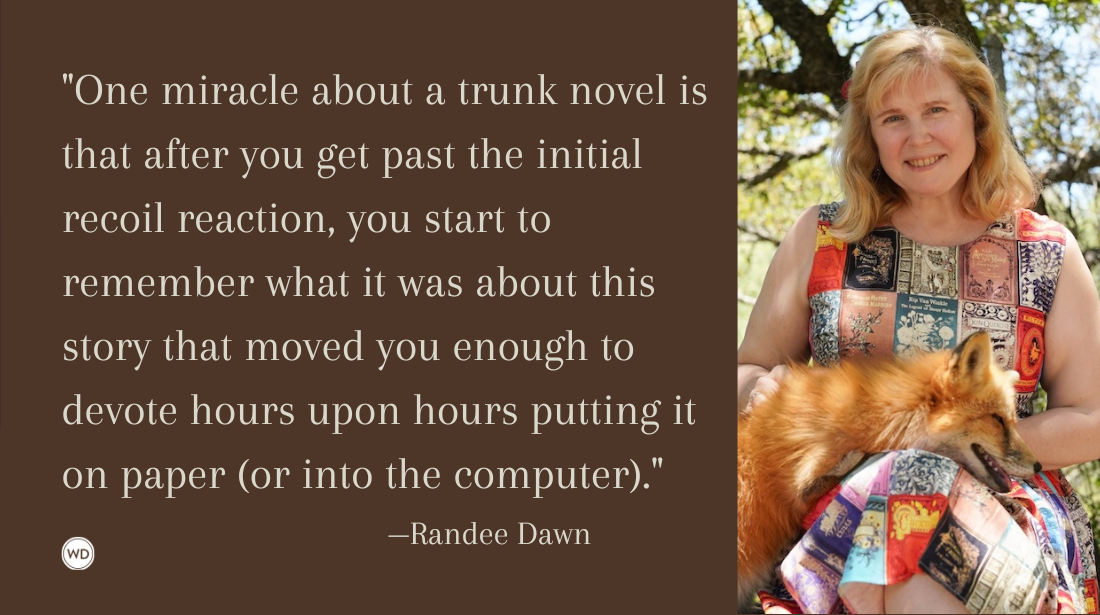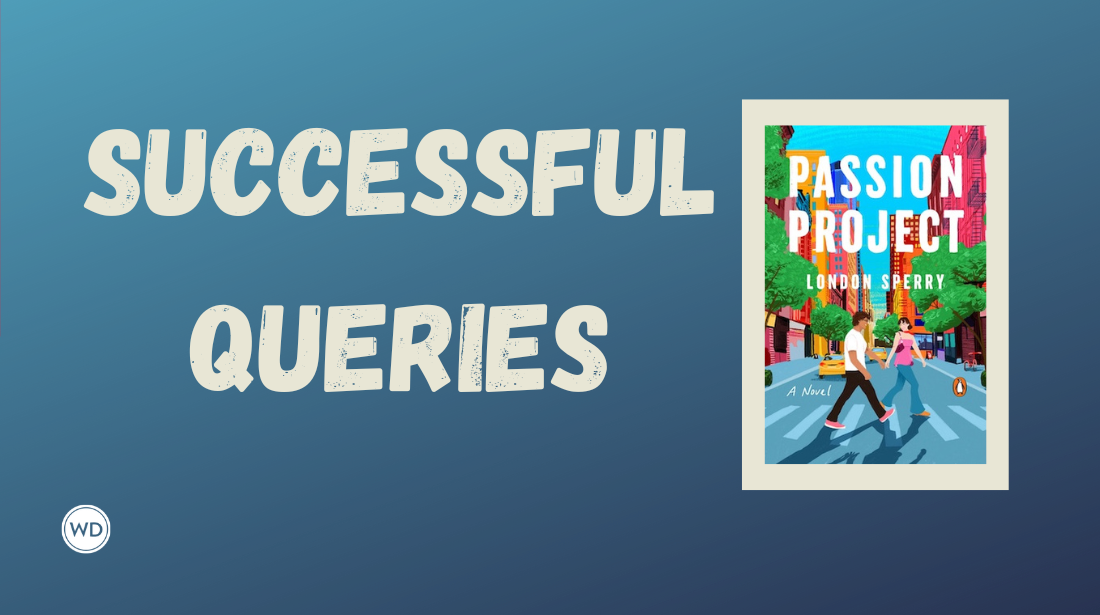8 Reasons Every Book Needs a Business Plan to Achieve Success
No matter how you want to publish, and whether you write fiction or nonfiction, you should produce a business plan for each and every book you write and publish—before writing a word of your manuscript. Let me offer you eight good reasons why I believe this is an important practice if you want to achieve success as an author.
For many years, traditional publishers have required the majority of authors to produce business plans for their books. These plans are most often referred to as book proposals. However, some aspiring authors don’t feel the need for such business plans. In fact, every book needs a business plan, which means every author needs to write one.
*********************************************************************************************************************************
Nina Amir is the author of How to Blog a Book: Write, Publish, and Promote Your Work One Post at a Time (Writer’s Digest Books). Her book The Author Training Manual: Develop Marketable Ideas, Craft Books That Sell, Become the Author Publishers Want, and Self-Publish Effectively (Writer’s Digest Books, March 2014), teaches aspiring authors how to create a business plan for a book and to see themselves and their ideas through the same lens used by acquisitions editors. Nina transforms writers into inspired, successful authors, authorpreneurs, and blogpreneurs. Known as the Inspiration to Creation Coach, she moves her clients from ideas to finished books as well as to careers as authors by helping them combine their passion and purpose so they create products that positively and meaningfully impact the world. A sought-after author, book, blog-to-book, and results coach, some of Nina’s clients have sold 300,000+ copies of their books, landed deals with major publishing houses, and created thriving businesses around their books. She writes four blogs, self-published 12 books, and founded National Nonfiction Writing Month, AKA the Write Nonfiction in November Challenge. www.ninaamir.com
*********************************************************************************************************************************
Although self-published authors don’t need a formal book proposal, because they alone make the decision to publish their work, they do need business plans. As the publishers of their own books, they alone must determine if their books are viable business propositions. Traditionally published authors rely on agents, and, ultimately, acquisitions editors, to make this determination, and these publishing professionals do so, at least initially, using the book proposal prepared by the author. That document then becomes the business plan for the book. More and more often, writers in all genres, even fiction, who seek traditional publishing deals are asked to turn in a proposal akin to a nonfiction book proposal.
I contend that no matter how you want to publish, and whether you write fiction or nonfiction, you should produce a business plan for each and every book you write and publish—before writing a word of your manuscript. Let me offer you eight good reasons why I believe this is an important practice if you want to achieve success as an author.
1. A business plan helps you hone your message or story into a viable product.
You don’t want to discover after you finish your manuscript that it isn’t marketable. That means no one will buy it—not readers or a publisher. It’s much better to ensure you create a marketable book idea from the start, and then write that book. A business plan forces you to create a focused book pitch, something difficult to do if you don’t know what you are writing about. That pitch offers you, and, ultimately, readers, a clear statement about your book’s benefits, why someone would want to read your book rather than someone else’s book on the same topic or with a similar story. It ensures you provide value to readers in your category and market. If you can’t provide value in the marketplace, you don’t have a viable product.
2. A business plan helps you determine if a market exists for your book.
Before you write your entire manuscript you also want to ensure you know who you are writing for and that you have a large enough market. A large market makes a book profitable. When you create a business plan for your book, you conduct a market analysis and determine how many potential readers exist for your book and where you might find them. When you know there are enough people in the world who might buy your book, and that you can target them with your promotion efforts, that justifies writing it.
3. A business plan helps you produce a unique and necessary book.
Conducting a competitive analysis, another part of producing a business plan for your book, forces you to take a close look at what other authors in the same category have already done with similar books. You can then compare and contrast their successful books to your own book idea. This helps you produce a book that is unique as well as necessary compared to those already published in the category. You surely don’t want to write a book that is just like all the others. Rather, you want to write a book that is different enough to make it stand out from the pack.
4. A business plan helps you create a marketable structure and content for your book.
A business plan includes a table of contents and chapter summaries (or a synopsis—although I suggest all authors produce chapter summaries). If you go to the trouble of doing this and then comparing your proposed content to your market and competitive analysis, you have an opportunity to tweak your book idea further. When you’ve finished this part of your plan, you stand little chance late in your book writing process of discovering you have produced a manuscript that is scattered, rambling, misses the point, left out important parts of the story, or leaves out essential information.
5. A business plan allows you to tweak your idea for maximum product viability.
At this point in the business plan creation process, you can go back to the beginning and rework your pitch to ensure that your initial book idea matches the final idea you have created based upon market and competition studies. You also can recheck the benefits—the value—you plan to provide readers. If your book sounds compelling, necessary, and unique after you make any final changes, you’re ready to begin writing. You’ve crafted a viable book idea.
6. A business plan offers you an opportunity to plan for success.
Whether you self-publish or land a traditional publishing deal, the promotion plans you implement before and upon release of your book determine your book’s success (how many copies it sells). That’s why every book’s business plan needs a promotion section, which is actually a plan of its own. Since promotion needs to begin the moment that the light bulb goes off in your head, it makes sense that you should start planning how you will promote your book before you even begin writing it. To do that, however, you need to have done your market analysis.
7. A business plan helps you evaluate your readiness to publish.
If you plan to self-publish, you could do so at any time. But that doesn’t make it the right time. Traditional publishers determine if nonfiction writers are ready to publish by evaluating the size of their author platform, the built-in readership they have created by increasing their visibility, reach, authority, and influence in their target market. Author platform can help fiction writers land publishing deals as well. And platform helps all authors create successful books. A fan base or a large, loyal following of people who know you means a higher likelihood of selling more books upon release. As you create your business plan, you should analyze the size of your platform and determine if now represents the best time for you to release a book.
8. A business plan helps you determine if you are a one-book author.
The more books you write, the more books you sell. When you write a business plan for your book, you take time to consider spin-off books, sequels, and series. This can be important if you want to create a business around your book, brand yourself, or attract a traditional publisher.
A Business Plan Helps You Produce a Successful Book
All eight of these reasons can be condensed down to one: Creating a business plan for your book helps you produce a successful book. Without creating a business plan prior to writing your book you risk producing a manuscript—and later a published book—with no market value. That means it won’t sell many copies. If you do produce a business plan for your book before you write it, you have a high likelihood of producing a viable—marketable—book idea. That means when you actually write the book and publish it, the book will sell—to publishers and, ultimately, to readers.
Thanks for visiting The Writer's Dig blog. For more great writing advice, click here.
*********************************************************************************************************************************
Brian A. Klems is the online editor of Writer's Digest and author of the popular gift book Oh Boy, You're Having a Girl: A Dad's Survival Guide to Raising Daughters.
Follow Brian on Twitter: @BrianKlems








